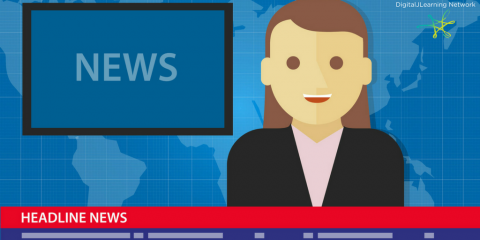Digital Citizenship: Media and News Literacy in 2017

We’ve been hearing a lot about truth in the media and the veracity of online news lately. With the amount of technology our students are using every day, we simply cannot afford to ignore these issues. We must set an example, speak up, and make sure our students know how to properly find and analyze credible news sources.
If you are integrating technology into your classroom, at one time or another your students are online. They may be accessing a museum website, doing research for a humanities project, or finding texts that explain the week’s parasha. Every time they go online, they are viewing and reading myriad informational sources, and not all of those sources were created equal.
With more and more people having access to publishing online it becomes consistently harder to tell apart the real, the fake, and the satirical. Former US senator Daniel Moynihan famously said, “Everyone is entitled to his own opinion, but not his own facts.” So how do we ensure, that when they are online, our students know how to tell facts from fiction and truth from lies? How do we arm them with the tools they need to be critical thinkers and active, questioning, digital citizens?
Here are some resources on media literacy for you to read and share with your students:
Common Sense Media. How to Spot Fake News (And Teach Kids to be Media-Savvy)
Tips for telling apart real and fake articles and questions to remind students to ask themselves when deciding how credible a source is. Useful for all ages.
NPR: The Classroom Where Fake News Fails
An article about teaching high schoolers to critically examine sources.
The News Literacy Project
A nonpartisan national education nonprofit that works with educators and journalists to teach middle school and high school students how to sort fact from fiction in the digital age.
Project Look Sharp
A media literacy initiative of Ithaca College with lesson plans and support for the effective integration of media literacy with critical thinking into classroom curricula.
Snopes.com
A nonpartisan, independent website that fact-checks everything from urban legends to news articles to political speeches.
Factcheck.org
A nonpartisan, nonprofit “consumer advocate” for voters that aims to reduce the level of deception and confusion in U.S. politics by monitoring the factual accuracy of what is said by major U.S. political players.
Tatyana Dvorkin is Director, DigitalJLearning at The Jewish Education Project.

